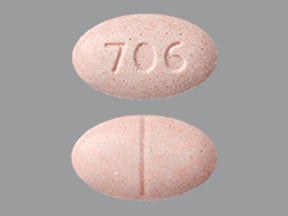My prescription
Edit
10MG, Enalapril (90 Tablets)
Select pharmacy

CVS
$30.01
COUPON PRICE
Albertsons
$20.94
COUPON PRICE
Walgreens
$24.21
COUPON PRICE
Walmart
$45.92
COUPON PRICEEnalapril savings card
Show this card to your pharmacist
Albertsons
$20.94
BIN
ID
PCN
GRP
019876
LH9BB96739
CHIPPO
LHX
Powered by
More prescriptions for hypertension
More prescriptions for hypertension
Price history for Vasotec (brand) & Enalapril (generic)
90 Tablets, 10MG
Average retail price for Vasotec
Average retail price for Enalapril
Average SaveHealth price for Enalapril
Our price history data is based on aggregated prescription data collected from participating pharmacies in America. Our prescription data updates daily to reflect the latest price changes. If you notice a missing data point, it means there wasn't sufficient data available to generate a monetary value for that date.
We analyzed Enalapril prices for (10MG, 90 Tablets) over the last 12 months. The average retail price was $290.51, while the average price using the SaveHealth discount card was $36.11. That's a savings of approximately 87.57% when using our Enalapril coupon.
Compared to the generic version, Vasotec had an average price of $740.00 over the same time period. With the SaveHealth savings card, Enalapril is 95.12% cheaper on average than Vasotec.
*Retail prices are based on pharmacy claims data, and may not be accurate when we don't have enough claims.
Enalapril dosage forms
Dosage Quantity Price from Per unit 2.5MG 30 Tablets $10.91 $0.36 2.5MG 60 Tablets $12.82 $0.21 2.5MG 90 Tablets $21.72 $0.24 2.5MG 100 Tablets $22.47 $0.23 2.5MG 1000 Tablets $55.30 $0.06 2.5MG 8000 Tablets $258.30 $0.03 2.5MG 40000 Tablets $1186.30 $0.03 5MG 10 Tablets $3.57 $0.36 5MG 30 Tablets $5.71 $0.19 5MG 60 Tablets $8.92 $0.15
| Dosage | Quantity | Price from | Per unit |
|---|---|---|---|
| 2.5MG | 30 Tablets | $10.91 | $0.36 |
| 2.5MG | 60 Tablets | $12.82 | $0.21 |
| 2.5MG | 90 Tablets | $21.72 | $0.24 |
| 2.5MG | 100 Tablets | $22.47 | $0.23 |
| 2.5MG | 1000 Tablets | $55.30 | $0.06 |
| 2.5MG | 8000 Tablets | $258.30 | $0.03 |
| 2.5MG | 40000 Tablets | $1186.30 | $0.03 |
| 5MG | 10 Tablets | $3.57 | $0.36 |
| 5MG | 30 Tablets | $5.71 | $0.19 |
| 5MG | 60 Tablets | $8.92 | $0.15 |
| 5MG | 90 Tablets | $18.63 | $0.21 |
| 5MG | 100 Tablets | $19.70 | $0.20 |
| 5MG | 120 Tablets | $21.84 | $0.18 |
| 5MG | 150 Tablets | $26.19 | $0.17 |
| 5MG | 180 Tablets | $28.43 | $0.16 |
| 5MG | 540 Tablets | $48.55 | $0.09 |
| 5MG | 1000 Tablets | $67.50 | $0.07 |
| 5MG | 1080 Tablets | $70.80 | $0.07 |
| 5MG | 8000 Tablets | $355.90 | $0.04 |
| 5MG | 40000 Tablets | $1674.30 | $0.04 |
| 10MG | 90 Tablets | $20.94 | $0.23 |
| 10MG | 30 Tablets | $11.07 | $0.37 |
| 10MG | 60 Tablets | $13.14 | $0.22 |
| 10MG | 100 Tablets | $21.60 | $0.22 |
| 10MG | 120 Tablets | $22.92 | $0.19 |
| 10MG | 540 Tablets | $48.55 | $0.09 |
| 10MG | 1000 Tablets | $67.50 | $0.07 |
| 10MG | 1080 Tablets | $70.80 | $0.07 |
| 10MG | 8000 Tablets | $355.90 | $0.04 |
| 10MG | 40000 Tablets | $1674.30 | $0.04 |
| 20MG | 30 Tablets | $11.95 | $0.40 |
| 20MG | 60 Tablets | $14.90 | $0.25 |
| 20MG | 90 Tablets | $24.00 | $0.27 |
| 20MG | 100 Tablets | $25.00 | $0.25 |
| 20MG | 120 Tablets | $27.00 | $0.23 |
| 20MG | 180 Tablets | $32.99 | $0.18 |
| 20MG | 540 Tablets | $48.55 | $0.09 |
| 20MG | 1000 Tablets | $67.50 | $0.07 |
| 20MG | 1080 Tablets | $70.80 | $0.07 |
| 20MG | 8000 Tablets | $355.90 | $0.04 |
| 20MG | 40000 Tablets | $1674.30 | $0.04 |

